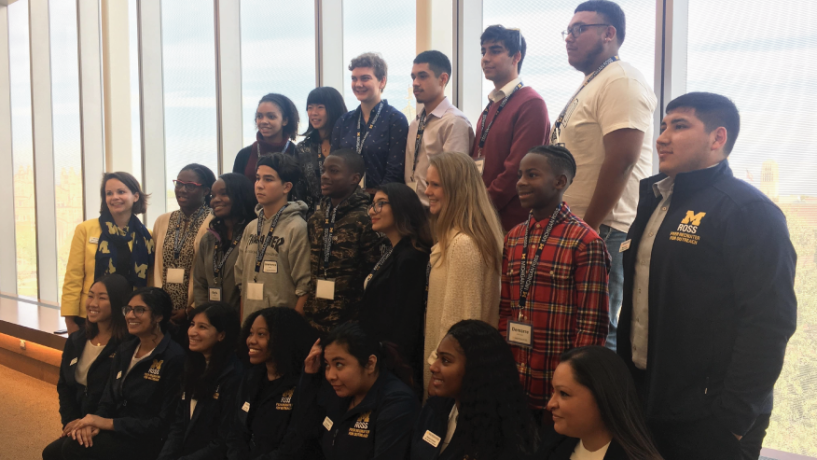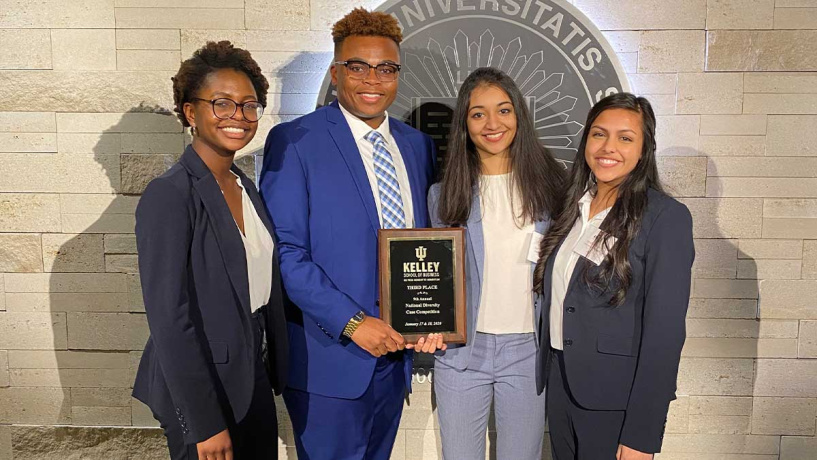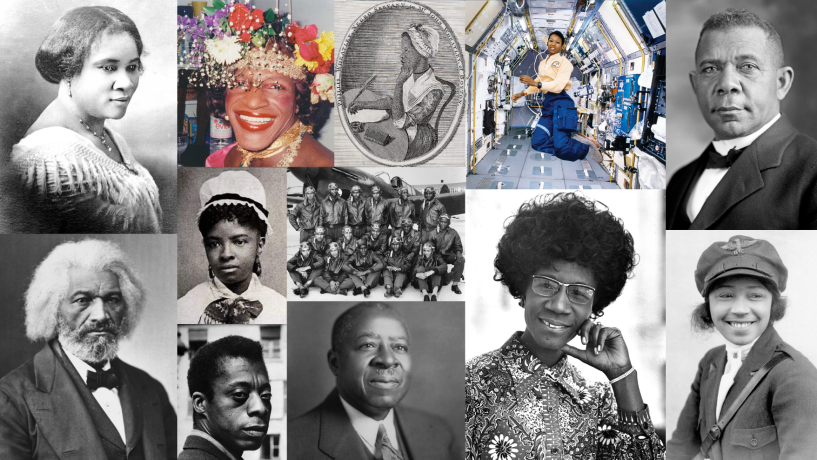How I Am Fortifying a Diverse and Inclusive Culture at Michigan Ross as a BBA Student
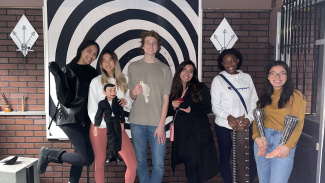
When I first walked into the wondrous Winter Garden, I knew that I wanted to make an impact on the Ross School of Business community.
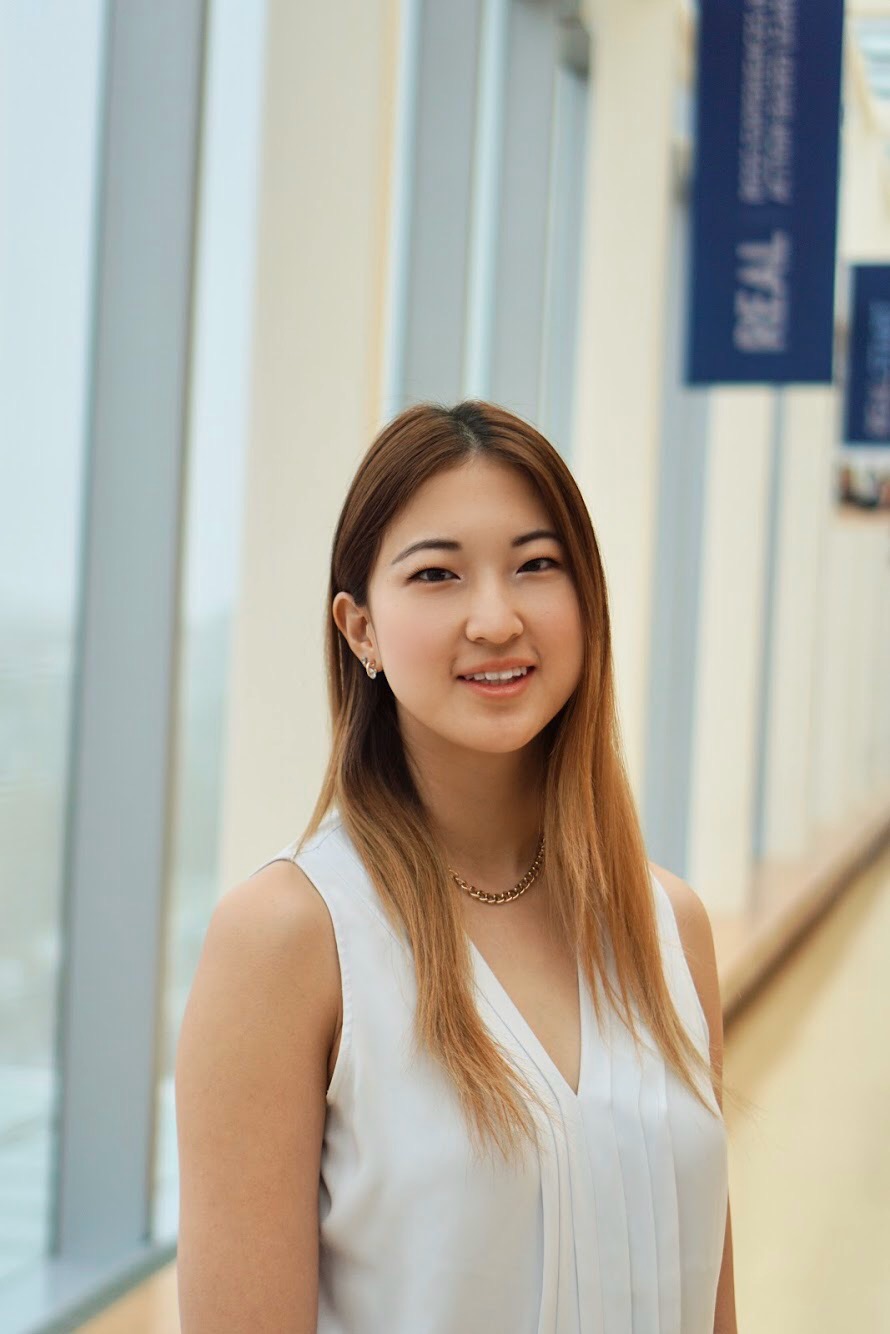
As a first-generation immigrant and college student, I’ve often felt like my voice was neglected. When I first immigrated to the United States in 2008, I didn’t speak any English, and I didn’t look like any of my peers. Growing up around people who were so distinctly different from me made me conscious of my differences. And it made me resent them. As I navigated through elementary and middle school, I tried my hardest to “fit in” and became so focused on the misconstrued concept of “popularity.” It wasn’t until the later years of high school that I realized “fitting in” didn’t make me feel any better about myself. It was, in actuality, standing out and sharing my unique experiences that gave me confidence, comfort, and contentment. I became more open-minded by befriending people of all types of cultures and backgrounds—and it was this diversity of perspectives that made me feel more accepted and more heard.
As an outspoken young woman, I soon realized that I could use my voice as a proponent for the underrepresented and became passionate about advocating for a more inclusive and equitable society.
Creating a more inclusive culture as part of the BBA DEI Committee
When I attended my first BBA Diversity, Equity, and Inclusion Committee meeting my first year at Michigan Ross, I knew that it was going to be a huge part of my college experience. However, at the time, I didn’t know the extent to which I could actually impact the Ross community.
The BBA DEI Committee (originally named BBA DEI Task Force) was founded by four incredible Michigan Ross alumni (Nithya Elsa Ramesh, BBA ’20; Mia Heard, BBA ’20; Kori Scott, BBA ’20; Shartia Ducksworth, BBA ’20), who sought to institute systemic change at Ross. All four of these powerful women served as incredible leaders and role models for me, and I genuinely would not have grown as much as I have without them. The legacy that they’ve started has been my greatest motivation in continuing my efforts with the BBA DEI Committee.
When I started out as a general member of the task force, I contributed to smaller projects, such as More You Know Monday, a trivia booth in the Winter Garden at Ross that focuses on bringing awareness to and celebrating diverse identities. During my second semester of that year, I was fortunate enough to be selected as the inclusive classroom director, a role that identifies core problems within the student body and facilitates inclusive changes by working with faculty and staff. One of my first major projects was creating an interactive, educational DEI module which was implemented into the BBA curriculum to promote inclusive mindsets for first-year and transfer students. Now, as a junior BBA, I’ve served as the inclusive classrooms director for two years, and I plan on continuing my leadership on the BBA DEI Committee after I return from my semester abroad in South Korea.
Making an impact as a DEI student leader on campus
In my past two years serving on the BBA DEI Committee, I have worked with my fellow co-directors, diverse Ross student leaders, and faculty and staff across the Ross administration to bring diverse events to Michigan Ross. These opportunities typically fall into four categories: facilitated workshops on inclusive practices, collaboration events with other organizations or schools, identity-specific initiatives to bring support and awareness to certain underrepresented groups, and committee-sponsored goodies free to the public.
Some of the workshops we put on every semester include mandatory Holistic Application Review workshops for Ross organizations during club recruitment season, Allyship 101 workshops for anyone interested in learning toolkits to become an ally for all identities, and Unconscious Bias workshops to help people become aware of and overcome their biases.
In addition, Ross Culture Conversations is a series of open-dialogue community talks that we started during my first year as a director. From collaborating with Michigan State University to host a discussion on Black Lives Matter during the height of the BLM movement, to working with several Asian affinity Ross organizations on supporting the Asian American Pacific Islander Community after widespread Anti-Asian hate crimes, these Culture Conversations are a crucial way for students within the Ross community to genuinely share their thoughts and support each other through vulnerability and compassion.
One identity-based initiative that I am personally very excited about is the Ross First-Generation Initiative, which actually began through a (long and heartfelt) coffee chat with my ACC 301 professor and fellow first-gen Ross Professor Dennis Oswald. We had a successful First-Gen Community Mixer Kickoff Event last term to introduce the initiative as both a supportive community and a resource for first-gen Ross students to succeed and achieve their goals. Although there is still much work to be done, initiatives like these are critical in ensuring a more equitable environment for current and future students.
Creating a better student experience beyond DEI

Aside from these targeted DEI events, the BBA DEI Committee often uses our budget to help our fellow BBA peers and the Michigan Ross community. When COVID-19 first hit, and our college experience suddenly turned into long, virtual days, we felt that blue light glasses would help students immensely as they battled Zoom fatigue, so we gave out free blue light glasses to everyone and anyone who wanted one. (I’m sure we still have some extras so if you did not receive one, please do reach out!) During finals week this past semester, the BBA DEI Committee hosted a wellness-themed study break booth in the Winter Garden, where we handed out free healthy snacks and had an “Affirmation Wall” for students to give themselves and their peers a bit of encouragement.
Of course, these events and initiatives are just some of my favorites that I’ve helped put on, but the BBA DEI Committee works on so much more.
My takeaways from my time on the BBA DEI Committee so far
What I’ve realized during my time on the BBA DEI Committee is that systemic change doesn’t happen overnight, and that a little actually goes a very long way, especially when we want to make a lasting impact on the community. The BBA DEI Committee aims to foster a more diverse, equitable, and inclusive environment at Ross, but it can’t accomplish this alone.
Every single one of us, as a member of the Ross community, must continue to learn how to be better allies, challenge ourselves to be comfortable with being uncomfortable by remaining open-minded, and wholeheartedly commit to making Ross a welcoming home to all. One person can’t do all that much in changing the culture here at Ross, but when we all come together as a village, we can leave a legacy that will be carried on for generations.





